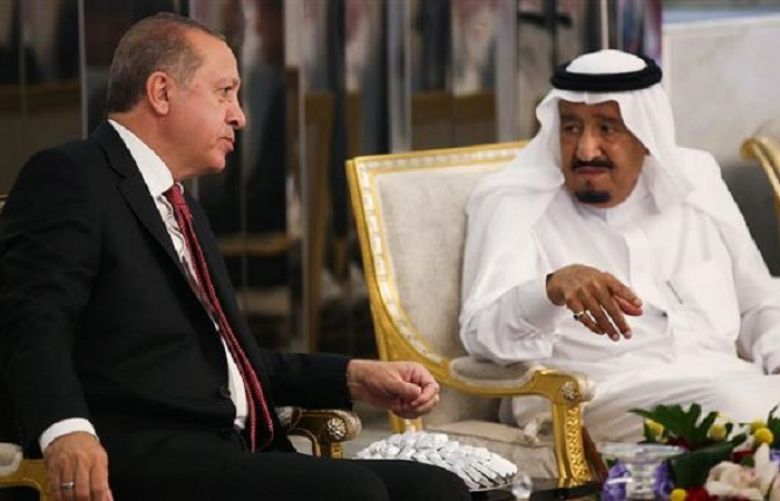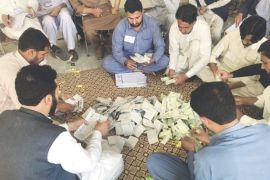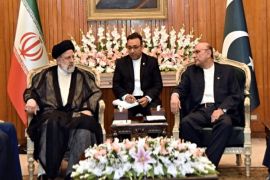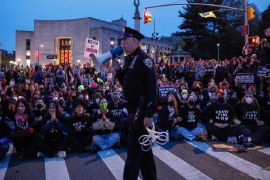Turkish President Recep Tayyip Erdogan has begun his three-nation tour to the Persian Gulf region by visiting Saudi Arabia in an attempt to defuse a political crisis between a Saudi-led quartet of Arab countries, the so-called siege states, and Turkey’s ally Qatar, as the unprecedented diplomatic rift deepens.
The Turkish president arrived in the Red Sea city of Jeddah on Sunday and was welcomed by Saudi King Salman bin Abdulaziz Al Saud before heading to Kuwait, a key mediator in the crisis, and holding talks with Emir Sheikh Sabah al-Ahmad al-Sabah.
Erdogan is also due to discuss the crisis with Mohammed bin Salman for the first time since he was raised to the role of Saudi crown prince and his father's heir in an unexpected reshuffle of the royal house that took place in June.
“No one has any interest in prolonging this crisis anymore,” said Erdogan at Istanbul Ataturk Airport, before leaving on the two-day trip, accusing “enemies” of seeking to fire up tensions between "brothers" in the region.
On Monday, the Turkish president will fly to Qatar to hold his first face-to-face talks with Emir Sheikh Tamim bin Hamad Al Thani. “I hope our visit will be beneficial for the region,” said Erdogan, whose country has come to Qatar's aid in the crisis, while praising Qatar's behavior in the crisis.
"From the first moments of the Qatar crisis, we have been on the side of peace, stability, solidarity and dialogue," the Turkish president stated.
The widening rift occurred on June 5, when Saudi Arabia, Bahrain, the United Arab Emirates (UAE) and Egypt severed ties with Qatar, officially accusing Doha of supporting "terrorism" and destabilizing the Middle East, allegations that Qatar says are unjustified and stem from false claims and assumptions.
To further pressure Qatar, Saudi Arabia has totally closed its land border with its tiny neighbor, through which much of Qatar's food supply crossed.
Later in June, the four Arab countries urged Qatar to abide by a 13-point list of demands if it wanted the crippling blockade lifted. The demands included shutting down the Doha-based Al Jazeera broadcaster, scaling back cooperation with Iran, closing the Turkish military base in Qatar, and paying an unspecified sum in reparations.
The defiant Doha government, however, strongly refused to comply, calling the wide-ranging demands "unrealistic, unreasonable and unacceptable." In return, the four feuding countries vowed to impose further sanctions on Doha.
On Friday evening, Qatar’s emir said in a live TV address that the recent blockade by the Saudi-led group of Arab countries against Doha was “a pre-planned smearing campaign.”
“Its planners planted statements to mislead public opinion and the countries of the world” Emir Sheikh Tamim said, while reasserting Doha’s position that it would not capitulate under pressure.
The coordinated move against Doha is spearheaded by Riyadh, which often manages to have its vassal states fall into line. Saudi Arabia itself is known as the main sponsor of Wahhabi terrorists it has accused Qatar of supporting. Some analysts believe the Saudi anger is rather because Qatar acts more independently of Riyadh, including in its relations with Iran.







